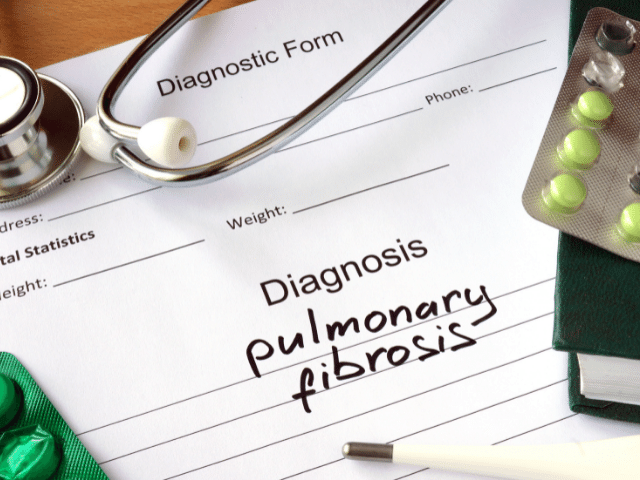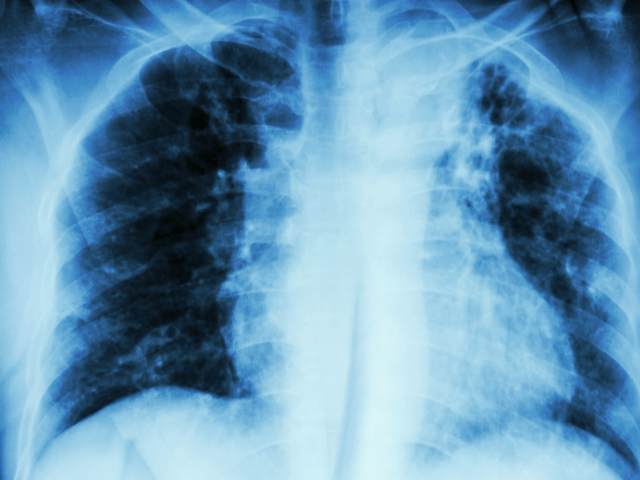What is Interstitial Lung Disease (Pulmonary Fibrosis)?

Interstitial Lung Disease is also known as pulmonary fibrosis or even interstitial pneumonia. Pulmonary Fibrosis makes up a group of conditions such as inflammation and scarring surrounding the alveoli in the lungs. This lung damage leads to a decreased ability of the lungs to take in oxygen which makes breathing difficult.
Pulmonary Fibrosis can be caused by a combination of extrinsic or environmental exposures, intrinsic or systemic disease, or genetic disorders. In most cases, the cause of the disease is unknown. There are few medical or surgical treatments for Pulmonary Fibrosis but in many cases there is no cure. However with appropriate management a patient can have a healthy, active life.
Learn more about Pulmonary Fibrosis.
The Physicians at Miami Pulmonary Specialists provide comprehensive, specialized medical care for patients with Pulmonary Fibrosis. Their experience will provide patients with a highly informed diagnosis and cohesive treatment plan.
What are the risk factors for Pulmonary Fibrosis?
Factors that contribute to an increased risk for Pulmonary Fibrosis include:
- Environmental exposures
- Occupational exposures
- Smoking cigarettes
- Autoimmunity disease
- Chemotherapy treatment
- Radiation treatment
- Family history of Pulmonary Fibrosis

What are the causes of Pulmonary Fibrosis?
The causes of Pulmonary Fibrosis are not clearly understood. Sometimes this makes diagnosis and treatment a challenge. Because of this reason, it is critical for patients to speak with experienced physicians at Miami Pulmonary Specialists with a specialized understanding of Pulmonary Fibrosis and possible treatment options available.
Some causes of Pulmonary Fibrosis are:
- Environmental exposures
- Occupational exposures
- Autoimmunity diseases
- Certain medications
- Genetics
What are the symptoms of Pulmonary Fibrosis?
The symptoms of Pulmonary Fibrosis can widely vary for each patient.
Some causes of Pulmonary Fibrosis are:
- Dyspnea which is shortness of breath at rest or during exercise
- A dry cough
- Constant Fatigue
- Poor appetite and weight loss
- Pain in the chest
How is Pulmonary Fibrosis diagnosed?
Your physician at Miami Pulmonary Specialists will take a complete medical history and conduct several initial tests to diagnose Pulmonary Fibrosis. These tests include:
- Pulmonary function tests to assess your lung function
- 6-minute walking test
- X-ray of the chest
- High-resolution computerized tomography scan
- Echocardiogram to evaluate your heart function
- Bronchoscopy
- Video-assisted thoracoscopic surgery, surgical removal of lung tissue samples
What are the treatment options for Pulmonary Fibrosis?
Pulmonary Fibrosis cause irreversible lung scarring and damage. Because of this, it’s important to consult with the team at Miami Pulmonary Specialists and begin timely treatment.
When treating Pulmonary Fibrosis, the main goal is to preserve the function of the lungs. Your individualized treatment plan can include a variety of medications, oxygen therapy, pulmonary rehabilitation and, if indicated, a lung transplant.
Medications for Pulmonary Fibrosis
Depending on a number of factors such as your type of lung disease, the stage of the disease, your age and other factors, the physicians at Miami Pulmonary Specialists may prescribe therapies that can reduce fibrosis, optimize the immune system or treat pulmonary hypertension.
Oxygen Therapy for Pulmonary Fibrosis
If you do not have adequate oxygen in your blood, you may need to receive supplemental oxygen. There are several devices available to deliver pure oxygen to your lungs. Many of these devices are portable and very convenient to use.
Pulmonary Rehabilitation for Pulmonary Fibrosis
This program will train you to lead a more active lifestyle with exercise, nutrition and other strategies for living with Pulmonary Fibrosis. Contact Miami Pulmonary Specialists to learn more.
Lung Transplant for Pulmonary Fibrosis
If other therapies do not improve your Pulmonary Fibrosis, your physician may recommend a referral and evaluation by a lung transplant specialist.
If you have been diagnosed with Pulmonary Fibrosis or would like an evaluation, contact Miami Pulmonary Specialists today.

